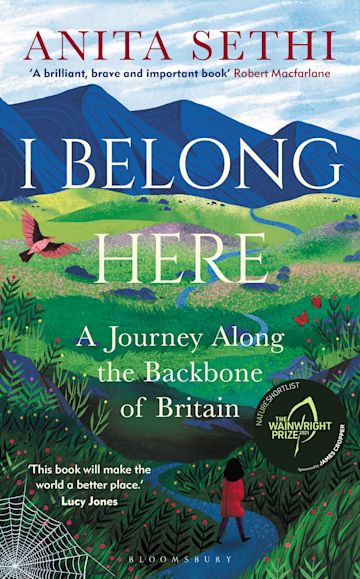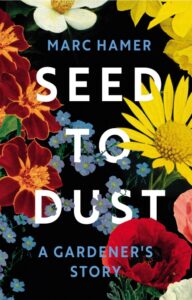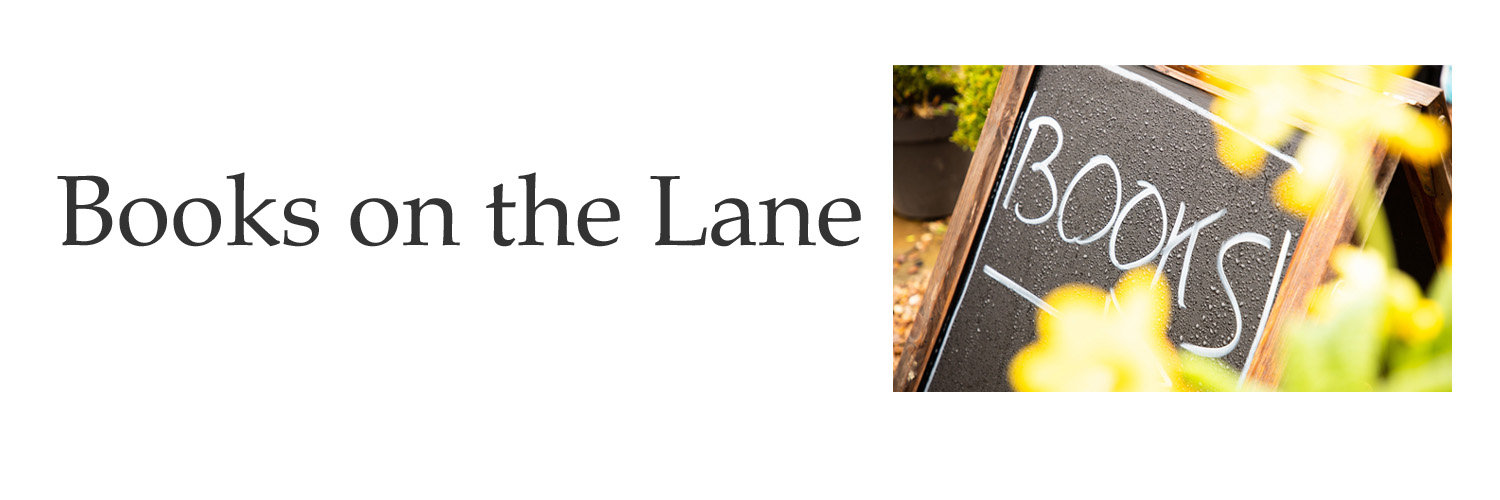Read This
The Books on the Lane Book of the Month Page
I Belong Here
Anita Sethi
Pub. Bloomsbury Wildlife 2021

To say that Anita Sethi’s book, I Belong Here, is a timely read is an obvious statement, but no less true for its self-evidence.
Sethi was a victim of horrendous racial abuse while travelling on a TransPennine train from her native Manchester to Newcastle. This vicious attack on her right to exist in the place of her birth understandably shook the writer to her core, causing
her to question her sense of belonging in the UK and the North especially. Treading that well-worn path of the non-fiction journey of self-discovery – previously beaten by writers from Albert Wainwright to Cheryl Strayed – Sethi sets out to walk
along the “backbone” of Britain, the Pennines.
By walking alone through the wild, remote Pennine landscapes she aims to reclaim her identity as a northerner and
discover more about the people, places, and ideas of the North.
Sethi opens her Wainwright Prize-shortlisted book in the Peak District village of Hope. This is symbolic, both of the optimism that runs throughout her narrative – even during her most harrowing accounts of racism in the UK – and of the activist
spirit that has clearly spurred Sethi to give voice to her experiences. Walking, she argues, has always been a radical act – Hope, of course being a starting point for the
climb up Kinder Scout, site of the 1932 Mass Trespass when an estimated 600-800
walkers sought to reclaim their right to roam in their homeland.
It is this same goal that drives Sethi’s journey almost 90 years later.
Her book does not follow a linear structure. Rather it weaves its way through
historical accounts of Britain’s colonial atrocities and the Suffragette Movement in
Manchester; memoirs of Sethi’s own lived experiences of racism; exquisite nature
writing celebrating the unique Pennine landscape and wildlife; reflections on
language and how it can shape societal prejudices; and passionate polemics on how
to tackle racism and address the climate emergency.
Though this non-linear approach can occasionally make the narrative difficult to follow, it reflects Sethi’s
travels through the Pennines – which frequently venture off the beaten path to explore places such as Hull Pot in the Yorkshire Dales, England’s largest natural hole (who knew?) – and brings a fresh perspective to a well-established genre.
I Belong Here is not just a timely read but an important one. Through this book, Anita Sethi transforms a deeply traumatic experience into a story of hope and an urgent call to action – for how we can all take steps to combat hate, tackle social injustice and preserve our unique natural environment.
R.Johnson, September 2021.
Seed to Dust – A Gardener’s Story
Marc Hamer
Published by Harvill Secker 2021

There has probably never been a more perfect time to read this book. Anxieties are high and our experiences of the world have become limited. We spend much of our time indoors. This book stands to remind us of the beauty and simplicity of the natural world. It is a love letter to the woodpecker, the crow and the rook, the ‘low morning sun lighting up the glittering, dew-sagging spider webs’, the ‘red of autumn leaves’. Through the structure of a year, and significantly the four seasons, Marc subtly weaves the story of his own childhood and adult life against the backdrop of tending to the garden.
Reading this book is like a long, comforting, all-encompassing hug. Each night I looked forward to picking up its pages and transporting myself away from the day’s concerns to Miss Cashmere’s garden and Marc’s enlightening observations. It is a lovely story in and of itself, but it is also informative. I learnt a lot of practical things about gardening and the natural world. it also works on a deeper level, to throw into question the structures and choices that can dictate our lives. It made me re-evaluate the ways in which I spend my time, my own connection to the natural world, my distance from it. It left me longing for a much simpler life, to be guided only by the changing seasons and the resilient, ever turning cycle of nature.
I felt very sad to finish this book, it had grown to become like an old friend that I visited each evening. Even now, a few weeks on from finishing it, I miss reading it. I highly recommend it, especially if you are craving stillness, relief from the uncertainties of this current climate, and the opportunity to reconnect with nature.
ZC March 2021
